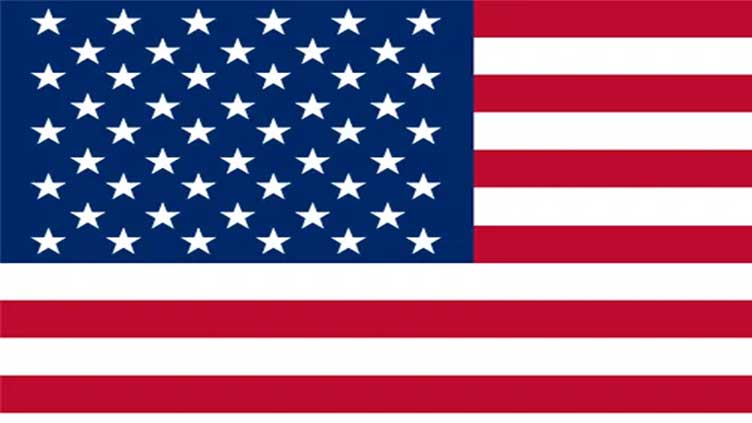US will send an unofficial delegation as Taiwan's president is sworn in. It'll test ties with China

World
US will send an unofficial delegation as Taiwan’s president is sworn in. It’ll test ties with China
WASHINGTON (AP) — The White House will send an unofficial delegation to Taiwan this weekend for the inauguration of the island’s democratically elected president, the Biden administration announced Wednesday, in a move that is certain to upset China but unlikely to draw excessive responses from Beijing as the two countries try to stabilize relations.
A senior White House official said the move is in line with longstanding U.S. practice to send the delegation — which includes two former senior officials and a scholar — to the inauguration ceremony Monday. Lai Ching-te of the Democratic Progressive Party will take office, succeeding Tsai Ing-wen of the same party.
Beijing, which sees Taiwan as part of Chinese territory and vows to seize the island by force if necessary to achieve unification, sees Lai as a supporter of Taiwan’s independence and has long opposed any official contact between Washington and Taipei.
“In what ways the U.S. deals with the new Taiwan authorities on May 20 and afterwards will affect (the) cross-Strait situation and also the China-U.S. relations in the future,” Liu Pengyu, spokesman for the Chinese Embassy in Washington, said Tuesday before the announcement, referring to the Taiwan Strait.
“So we urge the U.S. side to act on President Biden’s commitment of not supporting Taiwan independence,” he said.
The U.S. delegation will be in Taipei “to represent the American people,” the White House official told reporters on condition of anonymity to discuss details of the trip before it was announced. The official called Taiwan “a model for democracy not only in the region but also globally.”
Despite an absence of formal relations with Taiwan, the U.S. is the island’s strongest ally and is obligated under a 1979 law to help Taiwan protect itself from invasion.
It’s unclear how Beijing would respond to an unofficial U.S. delegation at the Taiwanese inauguration, but “Beijing will be the provocateur should it choose to respond with additional military pressure or coercion,” the U.S. official said, adding that the administration is not predicting how China would respond.
Beijing has repeatedly warned Washington not to meddle with Taiwan’s affairs, which it says are a core interest for China because it is a matter of sovereignty and territorial integrity. Beijing sees Washington’s support for Taiwan as provocative.
The U.S. insists any differences be resolved peacefully and opposes any unilateral changes by either side to the status quo. “We do not support Taiwan independence,” the administration official said. “We support cross-Strait dialogue.”
Taiwan has topped the agenda in U.S.-China relations, which have soured over issues ranging from trade, cybersecurity and human rights to spying. The Biden administration, in its competition with China, has engaged in “intense diplomacy” aimed at preventing tensions from spiraling out of control.
Treasury Secretary Janet Yellen and Secretary of State Antony Blinken have recently visited China in the administration’s latest effort to keep communications open and minimize misunderstanding.
Shortly after Lai was elected in January, President Joe Biden sent an unofficial delegation to Taipei to meet Lai, drawing protests from Beijing. Members of Congress also have traveled to Taiwan to meet the president-elect. Plans are underway for a congressional delegation to visit Taiwan shortly after the inauguration.
Beijing reiterated its claim over Taiwan immediately after Lai was elected and said “the basic fact that Taiwan is part of China will not change.” Days later, Nauru, a tiny Pacific nation, severed its diplomatic ties with Taiwan, which now is recognized by 12 governments, including the Vatican.
Since then, Beijing has criticized a U.S. destroyer’s passage through the Taiwan Strait. The U.S. Navy’s 7th Fleet said the USS Halsey “conducted a routine Taiwan Strait transit on May 8 through waters where high-seas freedoms of navigation and overflight apply in accordance with international law.”
Navy Senior Capt. Li Xi, speaking for China’s Eastern Theater Command, accused the U.S. of having “publicly hyped” the passage of the ship and said the command “organized naval and air forces to monitor” the ship’s transit.
Meanwhile, in a push to avoid Taiwan’s global recognition, Beijing said this week that it would not agree to Taiwan’s participation in this year’s World Health Assembly, an annual meeting by the World Health Organization that could boost Taiwan’s visibility on the world stage.
“China’s Taiwan region, unless given approval by the central government, has no basis, reason or right to participate in the World Health Assembly,” said Wang Wenbin, speaking for the Chinese foreign ministry.
Wang also said Taiwan’s Democratic Progressive Party, which came into power in 2016, has been “hellbent on the separatist stance” of Taiwan’s independence and that Beijing has “sufficient reason and a solid legal basis” to bar Taiwan from the global organization.
Here’s the bipartisan delegation that the White House is sending to Taiwan this weekend:
— Laura Rosenberger, chair of the American Institute in Taiwan, a nonprofit, private corporation established under a 1979 law to manage America’s unofficial relations with Taiwan.
— Brian Deese, a former director of the National Economic Council in the Biden administration.
— Richard Armitage, a former deputy secretary of state under President George W. Bush.
— Richard Bush, a nonresident senior fellow at the Brookings Institution who previously served as chair of the American Institute in Taiwan.


